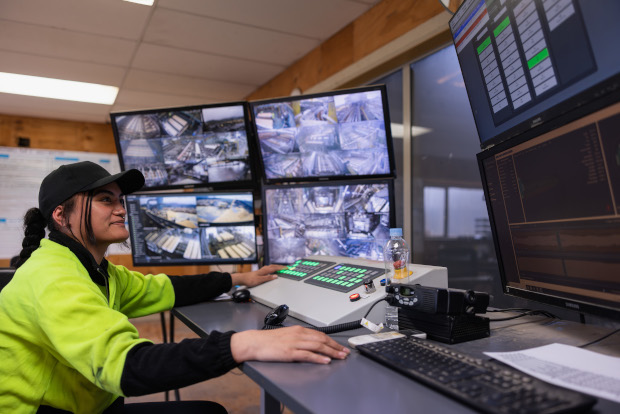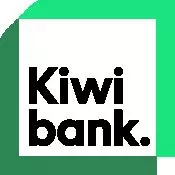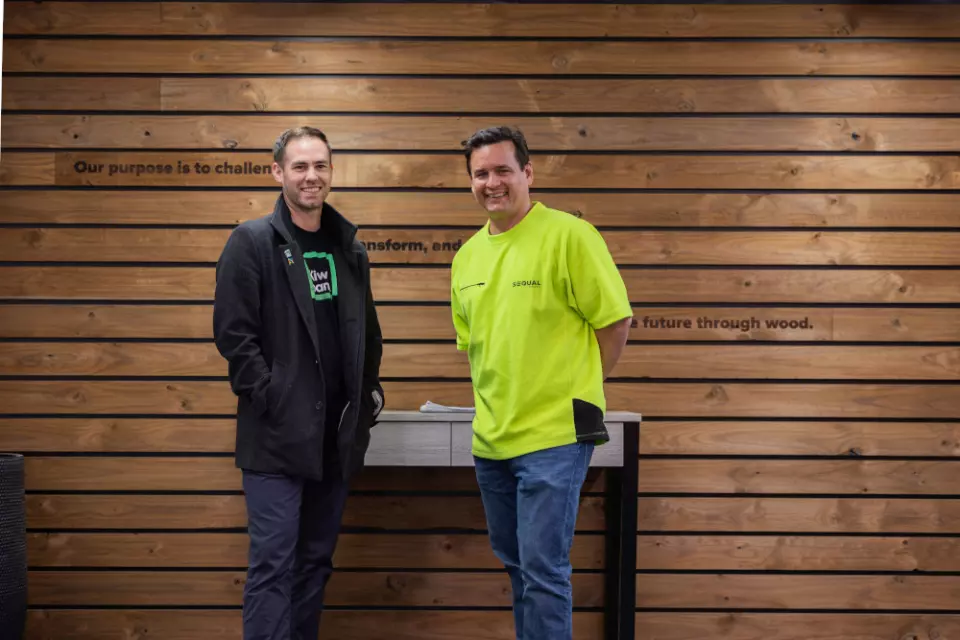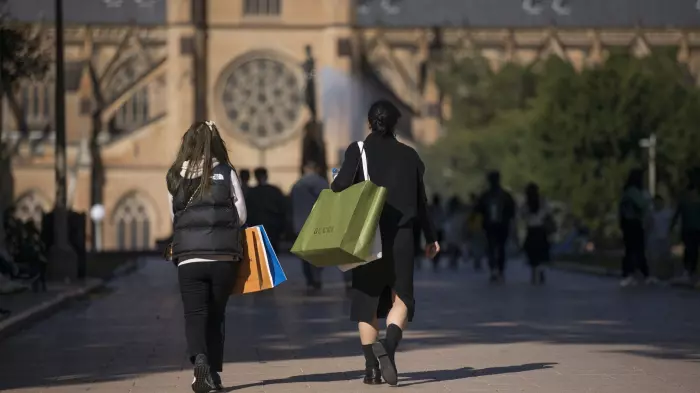Timber processors Sequal made a technology breakthrough, so Kiwibank cut itself a new path.
It’s not every day a bank significantly reorganises itself to support a customer – but the tale of Kiwibank and Sequal forms a new chapter in the way New Zealand business is working towards sustainability, environmentally-friendly operations and helping local communities.
Sequal is a Kawerau-based wood processing firm which spent three years developing radical new software allowing it to cut logs in precise ways – meaning they can meet customers’ intricate needs, not just export raw timber.
Kiwibank quickly understood the impact of Sequal’s success in establishing a digital way of optimising a log with around 2 million options on each log to meet timelines and specifications – one log will end up on multiple jobs in different countries.
It’s uber-technology meets sawmilling while minimising waste. It’s been a game changer for Sequal, which supplies radiata pine to firms around the world to be used for pallets, furniture and packaging, as well as in construction.
How much of a game changer? The last few years have been challenging, thanks to the havoc wrought by Covid, yet Sequal has grown 100% per cent in that time, says CEO David Turner.
It took three years to develop the technology in conjunction with the University of Auckland. The software runs millions of simulations daily to figure out the best cuts according to each customer’s order, enabling Sequal to create more value – and not just export raw logs.
So Sequal took a new course: mass customisation of its products and a partnership with a bank which, extraordinarily, decided to customise itself so it could support Sequal’s unique approach to sustainability, the environment and their local community.

Kiwibank significantly customised their back office services for the Kawerau company, according to the Head of Sustainable Finance, Tom Williams: “They had quite a technical need around trade finance and how they could access offshore markets and funding. Rather than say, ‘That sounds too hard’ or offer them standard solutions, our team worked with them to custom-build a solution that would meet their needs.”
“We can customise our services to meet the needs of our customers. For those larger, more complex customers, working with them to make sure we have what they need is a really important part of what we do.”
This trading desk facility allowed Sequal to enjoy capital growth and now Kiwibank is happy to support Sequal further in their growth goals, says Williams. “We’re looking at how we can attach funding to really drive some of the sustainable innovation they’ve got going at the moment, like expanding their infrastructure.”
He says Kiwibank likes the fact Sequal is not just in business for the revenue: “They’ve had extraordinary growth by using technology to maximise what they can do with a log and to give perfect products to a customer every time, but they’ve also been equally invested in supporting their community, socially and environmentally.”
“A lot of businesses say they care about their communities and the environment but, for some, it is often a marketing exercise. When we see a business like Sequal – where they understand the importance of sustainability and they know that without their community and their people they are nothing – then we really want to get behind them.
“The most important thing was having the confidence to back Sequal right from the start. I don’t think the bank they were with was giving them what they needed but we saw the potential from day one and wanted to go on that growth journey with them. We worked hard with them to tailor our services to their needs around trade finance, which were quite complex.
“Sustainability is more and more important to people these days,” he says. “I liken it to when you go to the supermarket and just about every product there has an eco-version. It’s becoming more common for people to purchase that more sustainable product where they can. If you are a business that is not looking to having a sustainable element to your product, then you really are being left behind.”
Turner says the NZ forestry industry has predominantly been about raw material exports: “Sending raw materials overseas is so easy but we really hate to see our logs being exported in that raw form when we should be adding value to them here.
“So focusing on a mass customisation business model has been a key part of our ability to grow. For New Zealand manufacturers to succeed globally, we need to transition to mass customisation. It’s not easy to do but there is definitely demand for it – we’re sold out beyond February.
Sequal’s planned period of growth over the next 12-24 months will include spending money on its plant to increase capability and building forest roading infrastructure, linking directly to rail, taking over 500 trucks per week off the state highway and enabling the development of alternative fuels, a positive for the environment and community.
“Kiwibank worked with us through this journey to support the growth of the new form of distribution that we needed to create,” says Turner. “When you’re dealing with a lot of change and ambiguity, the key to being able to succeed is the ability to rely on partners and, for us, our relationship with Kiwibank was one of those key partnerships.”
One of the reasons Turner wanted Sequal to work with Kiwibank was because of common values. Sequal is focused on giving back to the community in Kawerau, including contributing to local initiatives; it also believes it has an obligation to give more to the future by supplying a sustainably harvested product.
It already uses geothermal energy at its plant and is constantly looking for ways of doing things that are better for the environment. For example, woodchip left after the pine has been cut is used as packaging, while sawdust is turned into wood pellets to be used as biofuel.
“Wood is a crucial part of a low carbon environment, and Kiwibank has the same aspirations for New Zealand that we do when it comes to reducing emissions and also seeing value-added manufacturing thrive in New Zealand,” says Turner.
Williams says Kiwibank wants to help other businesses with ideals of serving New Zealand and its interests in sustainable and community-focused ways, whether they’re in manufacturing, transport, wholesale trade and construction or health, childcare and aged care services.
“It’s comforting to see more and more businesses today looking beyond just their bottom line and thinking more about the bigger picture,” Williams says. “At Kiwibank, we can customise our business banking facilities, we have an amazing team of people, and we want to do more for businesses.
“We have a huge appetite to grow and to fund businesses here in New Zealand, and the capability to do it.”
Watch the full episode in Kiwibank's series, Business for Better, and learn more about how Sequal are leading the way in how they do business for better kiwibank.co.nz/businessforbetter. This article was proudly brought to you by Kiwibank, who believe sustainability and profitability go hand-in-hand when creating a future proof business. That's why Kiwibank support Kiwi businesses making a positive impact on the environment, their customers and their employees. This is business banking for better #ThisisKiwi.






